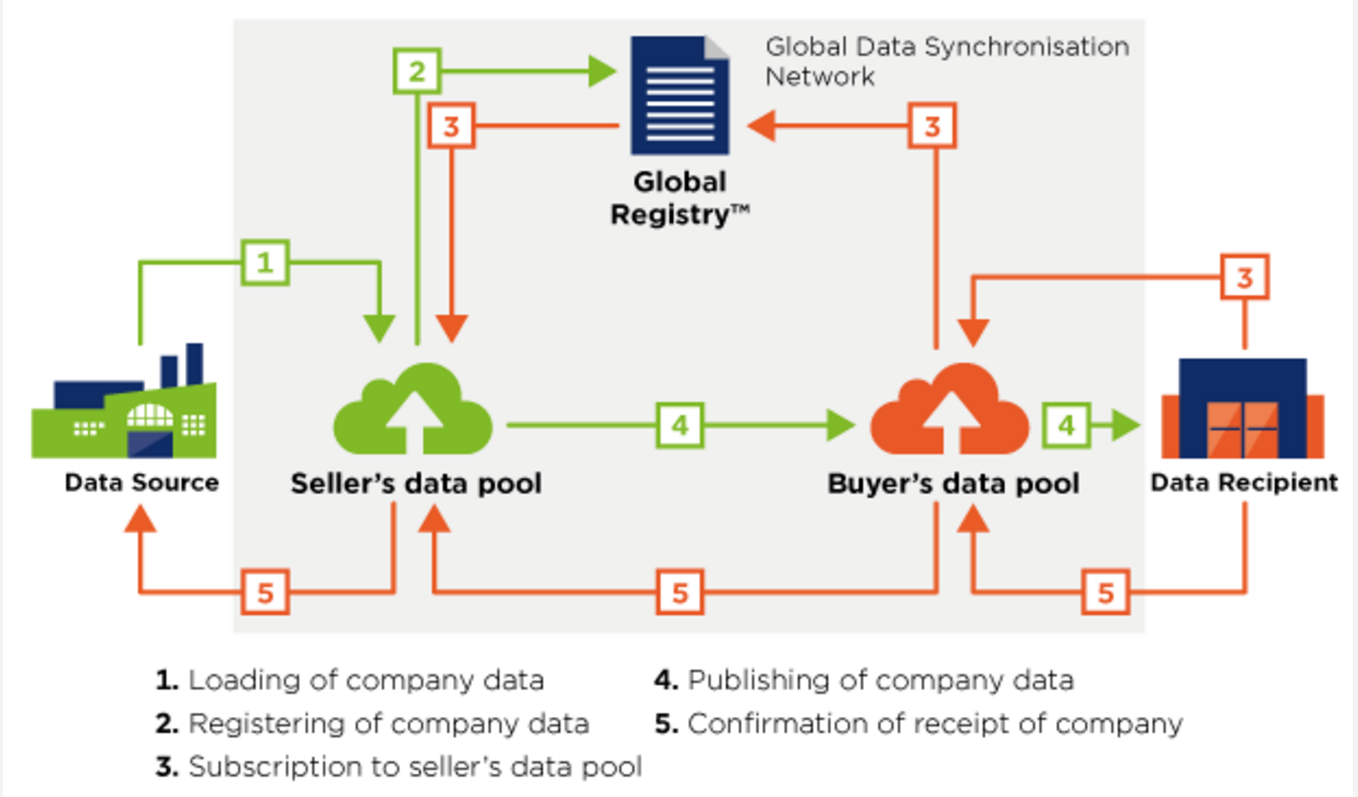Improving “master product data” — which is used to communicate essential information on commodities — is critical to strengthening global health supply chains. To this end, the USAID Global Health Supply Chain Program-Procurement and Supply Management (GHSC-PSM) project is partnering with 1WorldSync, an industry leader in global product data management services and data pool solutions, to join the GS1 Global Data Synchronization Network (GDSN).
The GDSN supports real-time data sharing and trade-item updates among trading partners, which facilitates product data exchange between companies and consumers, driving business and convenience for all partners in the network, all around the world.
Streamlining the Data Flow for Commodities
 Manufacturers are able to provide product master data to all of their customers (hospitals, distributors, wholesalers, etc.) simultaneously, with a single connection. Similarly, GHSC-PSM is able to pull master data from a single source – the Global RegistryTM – for all of their suppliers, streamlining communication channels and data flows. Source: GS1 Global Office
Manufacturers are able to provide product master data to all of their customers (hospitals, distributors, wholesalers, etc.) simultaneously, with a single connection. Similarly, GHSC-PSM is able to pull master data from a single source – the Global RegistryTM – for all of their suppliers, streamlining communication channels and data flows. Source: GS1 Global Office
Through this partnership, the project will integrate global health commodity product data into its electronic management information system known as ARTMIS (Automated Requisition Tracking Management Information System) and adopt the GDSN standard for data exchange. This data will form the basis of GHSC-PSM’s product catalog. Anticipated benefits include improved data quality, more efficient data sharing, and increased interoperability with suppliers and other supply chain partners.
“This partnership will greatly improve the data quality and visibility in ARTMIS, leading to deeper analytics and data exchange between GHSC-PSM, suppliers and other partners in the global health community. By moving to a common language for data exchange, we can make better-informed decisions and react more nimbly to changes that impact our ability to provide services and goods,” says Sam Oh, the project’s catalog manager.
Master product data includes information on standard identifiers like the Global Trade Item Number(GTIN) and Global Location Number (GLN), in addition to product attributes, classifications and regulatory data, which informs and drives decision making across the entire supply chain.